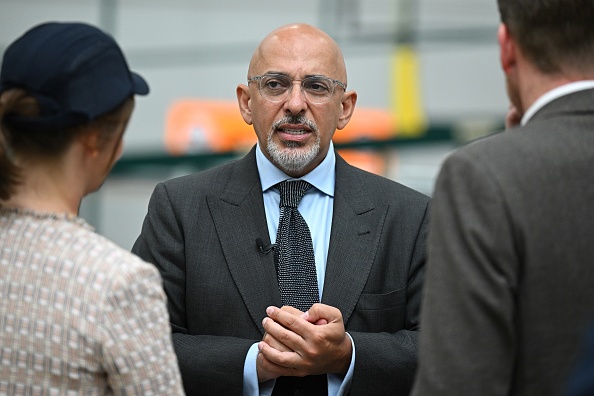Nadhim Zahawi: The next PM will have ready-made options for the energy crisis

When I became Chancellor, I was determined to get out of the Treasury building and meet as many people and businesses as I could. I’ve heard the same story everywhere I go, across the UK: real worry about rising costs. I’ve reassured people that the government is already doing a lot – and we’re preparing new options to go further. Whoever is Chancellor from September 5th, I’ve made sure they’ll have a ready-made menu of policies to help alleviate what is undoubtedly a severe economic situation.
But worried as people are, I’ve also seen determination. A sense that however challenging things are right now, the businesspeople of Britain won’t be deterred. I’ve met some brilliant businesses. Inspiring entrepreneurs. And some of the most exciting – the most innovative – are in financial services.
I know from my time in the Treasury just how vital this sector is for public services of this country: financial and professional services had a total tax contribution of almost £100bn, with 2.3 million jobs in the sector. From reinsurance to debt issuance, the City is already a world leader.
But I’m not complacent. The government is ambitious. And we’re carrying out significant reforms to make sure we stay at the front of the international finance pack.
Take the Financial Services and Markets Bill – which we’ve just published. The Bill should help to push the vanguard of innovation in areas like cryptoassets by legislating to bring stablecoins within the regulatory perimeter – where they are used as a means of payments.
And it will allow and encourage firms providing services to other firms to experiment with the adoption of innovative new technologies in financial markets through the use of regulatory sandboxes.
The Secondary Capital Raising Review – whose recommendations I have accepted in full – will allow retail investors to become involved in more capital raisings and companies to carry out fundraisings more quickly and cheaply. These are the kind of tools that I know will allow more British business – with thriving capital markets – to go for growth.
The Bill will also ensure that those who are responsible for regulating financial services are more accountable. The Treasury select committee will have a greater role in overseeing the work of both the PRA and the FCA, through reforms such as ensuring that regulators must notify the committee of consultations, and respond in writing to any representations by Parliamentary committees. It’s vital that empowering regulators goes hand-in-hand with ensuring that they do not overreach in their duties.
Financial services in the UK has the talent and tools to help vital areas of our economy flourish. To meet the Net Zero ambitions of this government, our reliance on nuclear power will likely have to increase. Small and advanced modular reactors – effectively, ready-made reactors – have the potential to revolutionise how households and businesses use energy, bringing reliable energy to millions. The Low-Cost Nuclear Challenge aims to develop a generation III nuclear reactor with funding from taxpayers matched with private investment. More of these kind of partnerships will be vital in the coming decades.
On a different scale, we know that small businesses are the lifeblood of our economy: almost 80 per cent of UK businesses have 9 or fewer staff. But I know from my own business experience – setting up and running YouGov – how tough capital raising can sometimes be. Access to new financing for scale-ups – of which there were over 33,000 in the UK in 2019 – is difficult: the metrics and accounting ratios just aren’t there for small, private firms which are growing rapidly as they are for established public companies. So we need to think about how access to finance can be made easier, including by improving the availability of data to promote successful loan applications and funding rounds.
But we’re already being proactive about supporting scale-ups. We know that access to top talent can prove a challenge, with seven out of ten scale-ups citing access to it as a key barrier to growth.That’s why we launched the Scale-up visa this week, with lighter touch sponsorship requirements, allowing international workers to come to the UK for an initial two years. For financial services, that means the best research professionals and software developers can help the City and its clients grow.
From what I know and have seen in this job, the City and financial services in this country will continue to thrive. With the right tools to hand – and level-headed regulation – the potential of this vital part of our economy knows no bounds.
